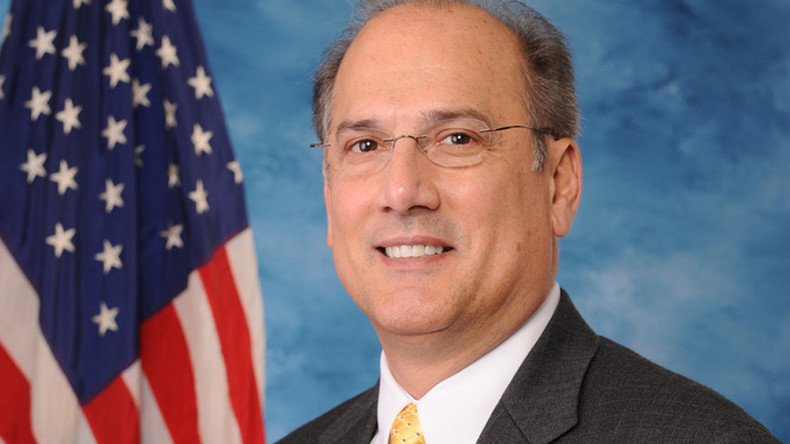No czar for you: Trump’s drug control pick abdicates after opioid scandal

President Trump’s nominee to lead the Office of National Drug Control Policy, Tom Marino, has withdrawn his name from consideration following whistleblower claims that he pushed a law that protects opioid drug distributors.
“Rep. Tom Marino has informed me that he is withdrawing his name from consideration as drug czar. Tom is a fine man and a great Congressman!” President Donald Trump tweeted Tuesday morning, two days after CBS’ 60 Minutes program featured several former employees of the Drug Enforcement Administration saying that the legislation that Marino (R-Pennsylvania) championed last year made it all but “impossible” for the government to go after unscrupulous distributors of addictive opioid pills.
Rep.Tom Marino has informed me that he is withdrawing his name from consideration as drug czar. Tom is a fine man and a great Congressman!
— Donald J. Trump (@realDonaldTrump) October 17, 2017
The Justice Department, under which the DEA operates, said Tuesday it will review the law’s impact on the government’s enforcement powers.
The bill, called Ensuring Patient Access and Effective Drug Enforcement Act, was signed into law by president Obama last year, after it was passed by both chambers of Congress. Critics say it effectively stripped the DEA of its authority to investigate suspicious transactions as the government is now required to meet a higher standard before taking enforcement actions.
In the CBS program, former head of the DEA's Office of Diversion Control Joe Rannazzisi also suggested that Marino put pressure on the DEA to get rid of him last year, after Rannazzisi accused Marino and the bill’s co-sponsor Marsha Blackburn (R-Tennessee) of protecting distributors he was investigating.
Marino and Blackburn wrote the DOJ inspector general, demanding that Rannazzisi be investigated for trying to "intimidate the United States Congress." Soon after, Rannazzisi was stripped of his responsibilities. He went from supervising 600 people to supervising none - so he resigned, Rannazzisi told CBS.
Last month, Trump nominated Marino to lead the Office of National Drug Control Policy. In August, the president said the opioid epidemic was a “national emergency,” after his Commission on Combating Drug Addiction and the Opioid Crisis reported that the US faces the death toll equal to “September 11th every three weeks” as opioid abuse claims the lives of up to 142 Americans every day.
But Trump has yet to formally declare the emergency status, which would then unlock additional resources to fight the epidemic.
“We are going to be doing that next week... It’s a very important step. And to get to that step, a lot of work has to be done, and it’s time-consuming work,” Trump said at a news conference Monday.
At least 46 investigators, attorneys & supervisors from DEA have been hired by pharmaceutical industry since scrutiny on distributors began. pic.twitter.com/MXL499bbXP
— CBS News (@CBSNews) October 16, 2017
Former DEA officials featured in the CBS program also alleged that their bosses at the agency during the Obama administration ‘shut off’ investigations into large distributors of addictive opioid pills, even when there was ample evidence of suspicious dealings. The drug industry used their money and influence to pressure top lawyers at the DEA, Rannazzisi said.
The ex-employees said one of the reasons for the roadblocks was the “revolving door” between the DEA and the drug industry, as a number of the administration’s top lawyers landed lobbying jobs for the pharmaceutical companies and drug distributors upon leaving the government, including the former DEA attorney who wrote the legislation for which Marino is now in hot water.












